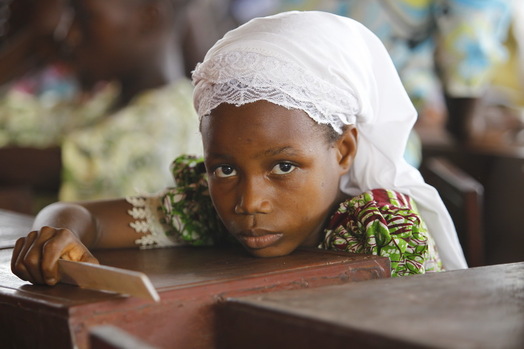
Non-governmental organizations which have carried the problems of the orphans to the world’s agenda on the occasion of the World Orphans Day, which is marked on April 2, highlight the statistics on the situation of the orphans around the world.
While the latest statistics cast a light on the realities about orphans in the world, they reveal how insufficient the steps which are taken for these children. Statistics show that the number of orphans in the world will reach 400 million as of 2015.
It is known that millions of children in the world are orphaned every day due to wars, natural disasters, hunger and diseases by losing either one of their parents or both parents. According to 2009 estimates of UNICEF, the population of the orphans in the world is 165 million, which makes up the seventh largest population in the world. Some detailed figures released by UNICEF on the basis of countries do not include statistics about countries such as Iraq and Palestine. However, it is estimated that five million children were orphaned by the eight-year-long US occupation in Iraq alone.
In African countries, AIDS is the most widespread cause which reduces the average lifespan of people and orphans children. According to statistics, the number of children orphaned due to AIDS alone in Africa is 15 million. Most of these orphans live in Sub-Saharan Africa. It is estimated that there are 53, 1 million orphans in this region. This figure is more than the number of orphans in Denmark, Ireland, Norway, Canada and Sweden altogether. The number of children orphaned in the region in 2010 alone is 5, 7 million.
According to data from SOS Children, an international organization, the population of orphans will reach 400 million in 2015 given the fact that one child loses one of their parents in every 2,2 minutes.
The picture created by these statistics becomes more worrisome when the difficult living circumstances of the orphans are taken into consideration. Unfortunately, millions of children around the world face domestic violence, negligence, psychical or psychological punishment, sexual or psychological harassment. Being an orphan means being more unprotected against abuse. Regional statistics show that orphans who are cared at a state facility until a certain age mostly tend to commit suicide, join dangerous crime organizations or involve in prostitution after they leave the state facility.
Although states offer some services for orphans or children who need protection, their services are not sufficient. So, the activities of non-governmental organizations and volunteers are of crucial importance. Projects carried out by the IHH Humanitarian Relief Foundation do not only reveal the efficiency of civil society but also they set an example for other international foundations. Carrying out orphan relief activities in 36 countries and regions in addition to Turkey, the IHH cares for 24,100 orphans thanks to its Sponsor Family System and reaches out to many more orphans with its periodical projects. IHH pays special attention to ensure that as many orphans as possible are cared by their relatives while it constructs orphanages for orphans who have no relatives so that they can grow up in a safe environment.
Please see http://www.ihh.org.tr/yetim/en for detailed information about the IHH’s orphan relief activities.